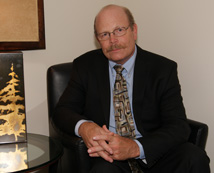“Thank you, Mr. Smith. You’ve made a tremendous difference in my life with your work and effort on my behalf. I’ll start alerting my family about our success. People told me I’d never be free from this, but you proved them wrong”
Colorado Mandatory License Revocation
Colorado Mandatory License Revocation
Colorado revised statutes 42-2-125 and 42-2-126 determine what traffic and criminal charges are subject to mandatory or administrative revocation. The mandatory revocation statute addresses all of the violations and penalties except alcohol and drug related violations. The administrative revocation statute addresses blood alcohol content, refusal and consequences of DUI and DUID. Understanding the complex implications requires a knowledgeable, experience DMV hearing attorney.
Philip M. Smith is a private criminal defense attorney in Denver, Colorado with over 37 years in criminal justice. Phil is a former judge and prosecutor. His law practice focuses on representing those facing criminal charges in the metro area municipal, county and district courts in Denver, Arapahoe, Jefferson, Douglas and Adams counties.
Philip M. Smith
Denver Criminal Defense Attorney
303-333-8900
COLORADO REVISED STATUTES
*** This document reflects changes current through all laws passed at the First Regular Session
of the Seventieth General Assembly of the State of Colorado (2015) ***
TITLE 42. VEHICLES AND TRAFFIC
DRIVERS’ LICENSES
ARTICLE 2.DRIVERS’ LICENSES
PART 1. DRIVERS’ LICENSES
C.R.S. 42-2-125 (2015)
42-2-125. Mandatory revocation of license and permit
(1) The department shall immediately revoke the license or permit of any driver or minor driver upon receiving a record showing that such driver has:
(a) Been convicted of vehicular homicide or vehicular assault as described in sections 18-3-106 and 18-3-205, C.R.S., or of criminally negligent homicide as described in section 18-3-105, C.R.S., while driving a motor vehicle;
(b) Been convicted of driving a motor vehicle while under the influence of a controlled substance, as defined in section 18-18-102 (5), C.R.S.;
(b.5) In the case of a driver twenty-one years of age or older, been convicted of an offense described in section 42-4-1301 (1) (a) or (2) (a). Except as provided insection 42-2-132.5, the period of revocation based upon this paragraph (b.5) shall be nine months. The provisions of this paragraph (b.5) shall not apply to a person whose driving privilege was revoked pursuant to section 42-2-126 (3) (a) (I) for a first offense based on the same driving incident.
(c) Been convicted of any felony in the commission of which a motor vehicle was used;
(d) Been convicted of failing to stop and render aid as required by section 42-4-1601;
(e) Been convicted of perjury in the first or second degree or the making of a false affidavit or statement under oath to the department under any law relating to the ownership or operation of a motor vehicle;
(f) Been three times convicted of reckless driving of a motor vehicle for acts committed within a period of two years;
(g) (I) Been twice convicted of any combination of DUI, DUI per se, or DWAI for acts committed within a period of five years;
(II) In the case of a minor driver, been convicted of DUI, DUI per se, or DWAI committed while such driver was under twenty-one years of age;
(g.5) In the case of a minor driver, been convicted of UDD committed when such driver was under twenty-one years of age;
(h) Been determined to be mentally incompetent by a court of competent jurisdiction and for whom a court has entered, pursuant to part 3 or part 4 of article 14 of title 15, C.R.S., or section 27-65-109 (4) or 27-65-127, C.R.S., an order specifically finding that the mental incompetency is of such a degree that the person is incapable of safely operating a motor vehicle;
(i) Been convicted of DUI, DUI per se, or DWAI and has two previous convictions of any of such offenses. The license of any driver shall be revoked for an indefinite period and shall only be reissued upon proof to the department that said driver has completed a level II alcohol and drug education and treatment program certified by the unit in the department of human services that administers behavioral health programs and services, including those related to mental health and substance abuse, pursuant to section 42-4-1301.3 and that said driver has demonstrated knowledge of the laws and driving ability through the regular motor vehicle testing process. In no event shall such license be reissued in less than two years.
(j) Been required to file and maintain proof of financial responsibility for the future as provided by section 42-4-1410 or article 7 of this title and who, at the time of a violation of any provision of this title, had not filed or was not maintaining such proof;
(k) Repealed.
(l) Been found to have knowingly and willfully left the scene of an accident involving a commercial motor vehicle driven by the person;
(m) (I) Been convicted of violating section 12-47-901 (1) (b) or (1) (c) or 18-13-122 (3), C.R.S., or any counterpart municipal charter or ordinance offense to such sections and having failed to complete an alcohol evaluation or assessment, an alcohol education program, or an alcohol treatment program ordered by the court in connection with such conviction; or
(II) Been convicted of violating section 12-47-901 (1) (b) or (1) (c) or 18-13-122 (3), C.R.S., or any counterpart municipal charter or ordinance offense to such sections and has a previous conviction for such offenses;
(n) (Deleted by amendment, L. 2009, (HB 09-1266), ch. 347, p. 1816, § 8, effective August 5, 2009.)
(o) Been:
(I) (Deleted by amendment, L. 2009, (HB 09-1266), ch. 347, p. 1816, § 8, effective August 5, 2009.)
(II) Convicted of, or has received a deferred judgment for, an offense described in section 18-4-409 or 18-4-503 (1) (c), C.R.S., or a comparable municipal charter or ordinance offense.
(III) (Deleted by amendment, L. 2007, p. 504, § 3, effective July 1, 2007.)
(2) Unless otherwise provided in this section, the period of revocation shall be not less than one year; except that the period of revocation based on paragraphs (b) and (c) of subsection (1) of this section involving a commercial motor vehicle transporting hazardous materials as defined under section 42-2-402 (7) shall result in a revocation period of three years.
(2.3) (Deleted by amendment, L. 2007, p. 504, § 3, effective July 1, 2007.)
(2.4) After the expiration of the period of revocation pursuant to this section and any subsequently imposed periods of revocation, any person whose license is revoked under subparagraph (I) of paragraph (g) or paragraph (i) of subsection (1) of this section shall be required to have a restricted license pursuant to the provisions of section 42-2-132.5.
(2.5) The period of revocation under paragraph (g.5) of subsection (1) of this section for a person who is less than twenty-one years of age at the time of the offense and who is convicted of driving with an alcohol content of at least 0.02 but not more than 0.05 under section 42-4-1301 (2) (d) is as follows:
(a) Except as provided in subsection (2.7) of this section, three months for a first offense;
(b) Six months for a second offense;
(c) One year for a third or subsequent offense.
(2.7) (a) A person whose license is revoked for a first offense under paragraph (g.5) of subsection (1) of this section may request that, in lieu of the three-month revocation, the person’s license be revoked for a period of not less than thirty days, to be followed by a suspension period of such length that the total period of revocation and suspension equals three months. If the hearing officer approves such request, the hearing officer may grant such person a probationary license that may be used only for the reasons provided in section 42-2-127 (14) (a).
(b) The hearing to consider a request under paragraph (a) of this subsection (2.7) may be held at the same time as the hearing held under subsection (4) of this section; except that a probationary license may not become effective until at least thirty days have elapsed since the beginning of the revocation period.
(2.8) A person whose license has been revoked pursuant to paragraph (o) of subsection (1) of this section shall not be eligible for reinstatement of his or her license until the department receives proof that the person has satisfied any order for restitution entered in connection with the conviction.
(3) Upon revoking the license of any person as required by this section, the department shall immediately notify the licensee as provided in section 42-2-119 (2). Where a minor driver’s license is revoked under paragraph (m) of subsection (1) of this section, such revocation shall not run concurrently with any previous or subsequent suspension, revocation, cancellation, or denial that is provided for by law.
(4) Upon receipt of the notice of revocation, the licensee or the licensee’s attorney may request a hearing in writing, if the licensee has returned said license to the department in accordance with the provisions of section 42-2-133. The department, upon notice to the licensee, shall hold a hearing at the district office of the department closest to the residence of the licensee; except that, at the discretion of the department, all or part of the hearing may be conducted in real time, by telephone or other electronic means in accordance with section 42-1-218.5. The department shall hold the hearing not less than thirty days after receiving such license and request through a hearing commissioner appointed by the executive director of the department, which hearing shall be conducted in accordance with the provisions of section 24-4-105, C.R.S. After such hearing, the licensee may appeal the decision of the department to the district court as provided in section 42-2-135. Should a driver who has had his or her license revoked under this section be subsequently acquitted of such charge by a court of record, the department shall immediately, in any event not later than ten days after the receipt of such notice of acquittal, reinstate said license to the driver affected.
(5) Except where more than one revocation occurs as a result of the same episode of driving, license revocations made pursuant to this section shall not run concurrently with any previous or subsequent revocation or denial in lieu of revocation which is provided for by law. Any revocation unused pursuant to this section shall not preclude other actions which the department is required to take pursuant to the provisions of this title, and unless otherwise provided by law, this subsection (5) shall not prohibit revocations from being served concurrently with any suspension or denial in lieu of suspension of driving privileges.
(6) (a) Any person who has a license revoked pursuant to paragraph (m) of subsection (1) of this section shall be subject to the following revocation periods:
(I) After a first conviction and failure to complete an ordered evaluation, assessment, or program, three months;
(II) After a second conviction, six months;
(III) After any third or subsequent conviction, one year.
(b) (Deleted by amendment, L. 2007, p. 504, § 3, effective July 1, 2007.)
(c) Repealed.
(7) (Deleted by amendment, L. 2009, (HB 09-1266), ch. 347, p. 1816, § 8, effective August 5, 2009.)
(8) If a suspension or revocation of a license is authorized or required for conviction of an offense under state law, a final finding of guilt for a violation of a municipal ordinance governing a substantially equivalent offense in a municipality, county, or another state for purposes of a suspension or revocation shall be deemed as a conviction of the corresponding offense under state law. A stay of sentence or a pending appeal shall not deprive the department of the authority to suspend, revoke, or deny a driver’s license or minor driver’s license pending a final determination of a conviction on appeal.
If you need a criminal defense lawyer for your Traffic Offense, or if you have questions about criminal charges,I encourage you to contact me, Philip M. Smith, Denver Criminal Defense Lawyer, 303-333-8900 today for a free and confidential initial consultation.

"*" indicates required fields







